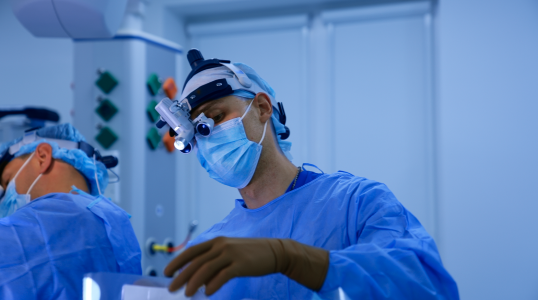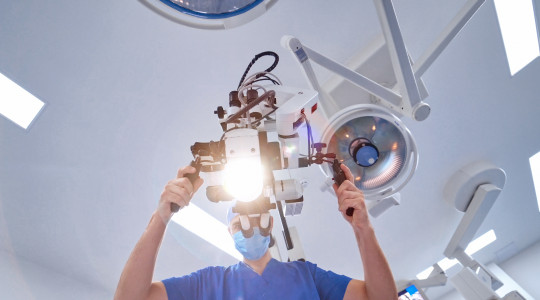
Bypass

Up to 70% savings
BMI criteria more
flexible than in France
Priority Treatment in English
and rigorous long term follow-up


Save up to 70%
80% Cheaper Than the UK, the US, Canada and Ireland
Globally acclaimed obstetric surgeons at your service
English-Speaking Care & Thorough Post-Op Follow-Up
High approval with 98% satisfied patients

Gastric bypass is among the so-called “mixed” bariatric surgery techniques.
Introduced in the 1970s, gastric bypass involves altering the stomach’s anatomy to diminish its size. It also curtails the body’s ability to absorb nutrients by rerouting a section of the intestine.
Following a bypass procedure in Turkey, patients typically experience a 70 to 75% reduction in excess weight. Beyond substantial weight loss, the surgery also diminishes the likelihood of obesity-related health complications. Obesity elevates risks for chronic conditions like diabetes, hypertension, cardiovascular ailments, and respiratory disorders, and it can also have profound psychological and societal implications.
The success rate of a bypass in Turkey is multifaceted. While top-notch medical care is vital, the patient’s commitment significantly influences the outcome, both in terms of immediate weight loss and long-term maintenance.
Considering a bypass in the UK necessitates patience due to the lengthy process. Limited funds often deter many from pursuing this weight loss solution. Even with NHS coverage, the additional expenses can render the procedure unattainable for many. An in-depth, methodical care plan is typically required for those considering a gastric bypass.
For those keen not to miss out on this transformative surgery, Turkey offers an alternative. Opting for bypass surgery in Turkey substantially reduces costs while upholding stellar medical standards. Turkish bariatric specialists undergo rigorous training comparable to their European counterparts. For a bespoke service and connections with top Turkish medical professionals, place your trust in the Body Expert team. Body Expert ensures unparalleled care quality, medical guidance, and tailored services.
The Roux-en-Y gastric bypass surgery reduces the stomach’s size by partitioning it into two sections at its upper end. Unlike the gastric sleeve, which solely restricts by decreasing the stomach’s volume, the bypass technique is termed “mixed” because, in addition to the restriction of the stomach size, it also diminishes nutrient absorption.
In the bypass procedure, surgeons create a small pouch at the stomach’s upper section. They then reroute, or ‘bypass’, a portion of the stomach and intestine. This bypass connects the newly formed stomach pouch directly to a section of the intestine called the jejunum. As a result, ingested food bypasses most of the stomach and the initial section of the intestine, known as the duodenum. It’s essential to note that unlike the sleeve surgery, which involves removing about 2/3 of the stomach, the bypass surgery doesn’t excise any part of this organ.
The surgery is executed in an operating theatre under general anaesthesia using laparoscopy. This method involves making four incisions: two that are 1 cm each and two that are 5 mm each. The bypass procedure typically takes 4 to 5 hours, followed by a hospital stay of 8 to 10 days.
To qualify for bypass surgery in Turkey or elsewhere, candidates, regardless of gender, must satisfy specific criteria.
Eligibility for gastric bypass is largely based on one’s BMI. A BMI of 30.0 kg/m² or higher indicates obesity. However, to be considered for the procedure, a BMI of at least 35 is mandatory. A BMI range of 35.0 to 39.9 kg/m² is classified as severe obesity, while a BMI of 40 or above signifies massive obesity.
For individuals with a BMI between 35 and 40, associated obesity complications are also a prerequisite for surgery. Obesity can manifest various health issues, such as type 2 diabetes. Other complications encompass high blood pressure, atherosclerosis, dyslipidemia, liver disease, chronic kidney disease, and certain cancers, notably those of the breast, uterus, and liver.
Bypass surgery, like other types of bariatric surgery, should be performed as a second-line procedure, meaning that other measures must have been taken to promote weight loss. These measures take the form of medical and nutritional treatment, but also psychotherapeutic follow-up for 6 to 12 months.
Before a bypass in Turkey, it is essential to provide adequate and comprehensive preparation. Bariatric care is multidisciplinary and includes several consultations with various medical specialties.
The preparation phase of the operation aims to inform, evaluate and prepare the candidates. Patient information includes a presentation of the different surgical techniques and the benefits and drawbacks of surgery on daily life. Emphasis is also placed on the need for dietary and lifestyle modification before and after surgery.
Possible medical and psychological contraindications can be identified during the evaluation phase which includes somatic, nutritional, eating behavior and psychological assessment.
Before a bypass in Turkey, the liver and kidney functions are checked and investigations to recognize possible risk situations for anesthesia are conducted.
The process to get a bypass in is usually long and difficult. To qualify for this bariatric surgery, the patient must prove that he or she has tried everything to lose weight without surgery. The patient must get a formal recommendation from their doctor and follow a diet for 6 to 12 months before they can even hope to be considered. Bypass candidates can wait more than 18 months.
If the patient meets all of these criteria, the long road to bariatric surgery begins. Several appointments with different specialists will be necessary to discuss treatment options and to evaluate whether the patient is able to lose weight and maintain this weight loss over the long term. The patient will need to demonstrate full commitment.
Most people who request bypass surgery do not get it. For those lucky enough to be accepted on the NHS, the long wait can be a hindrance. Indeed, it is possible to have to wait two years before being able to perform a bypass. Due to the high number of requests, it is very likely that the process will not be completed.
Turkey is one of the best countries in the world when it comes to medical innovations and quality of care.
The country benefits from experienced surgeons and fully equipped clinics to take care of patients from all over the world in the best conditions. In addition, bypass surgery in Turkey allows patients to benefit from much more affordable rates than in Europe and to shorten the waiting time before the operation is performed.
To provide an irreproachable quality of care to patients, the Body Expert medical tourism agency rigorously selects the bariatric surgeons with whom it collaborates. Body Expert bariatric surgeons all have extensive experience in gastric bypass surgery and are all very meticulous in the accompaniment and care provided to each patient.
The care of patients in a bypass surgery in Turkey with Body Expert is rigorously carried out by a dedicated medical team. At every stage of the process, from the evaluation phase to the post-operative phase, Body Expert offers personalized and conscientious support to promote weight loss and well-being for bypass patients in Turkey.

Through careful scrutiny, we’ve selected the cream of the crop when it comes to weight loss surgery clinics and surgeons in both Istanbul and Antalya, Turkey.
With Body Expert, we ensure that each phase of the patient’s journey is both vigilantly overseen and communicated with crystal clear transparency, crafting a reliable and holistic care experience.
At Body Expert, your journey from start to finish is ensured to be smooth and comprehensible, with dedicated assistance in the English language every step of the way.
In the realm of medical tourism, sustained post-treatment attention is vital. Body Expert stands by each patient, even after their surgery, devoted to monitoring and guaranteeing their continued well-being.
Entrust Body Expert for your pivotal medical journey towards improved health. As leaders in medical tourism, we provide tailored guidance and unwavering assistance to those considering gastric bypass procedures in Istanbul or Antalya. Our foundational promise is to deliver unparalleled care at competitive rates, with the assurance of transparent communication in your chosen language.
From the initial assessment to the post-operative phase, a dedicated Body Expert advisor will be your steadfast companion, making sure you are well-guided and cared for. Opting for a gastric bypass in Turkey through Body Expert taps into our profound expertise, offering the prospect of impressive savings—up to 80% less than average costs in other countries
3192 vues
0 commentaires
2
5503 vues
0 commentaires
0
The gastric bypass method facilitates an average loss of about 70-75% of excess weight, though individual results can vary based on multiple factors.
The primary reason for this significant weight reduction is the limited food intake resulting from the decreased stomach size. The procedure creates a ‘short circuit’ that reduces nutrient absorption, further enhancing the weight loss effect.
Opting for bypass surgery is primarily driven by the urgency to combat the perils of obesity. This bariatric intervention offers a pathway towards enhanced mental and physical well-being. While many individuals pursue weight loss to achieve body contentment, the surgery plays a critical role in decreasing the likelihood of obesity-linked ailments. Obesity is intrinsically tied to a myriad of health challenges, from type 2 diabetes to cardiovascular conditions. Undergoing a bypass also diminishes the threats of sleep apnea and non-alcoholic steatohepatitis, a manifestation of fatty liver disease. Moreover, with numerous cancers having a heightened prevalence in obese individuals, the surgery serves as a preventive measure.
With a bypass in Turkey the preparation phase is paramount. This preparation phase is based on performing several health checks, both mental and physical, as well as adopting healthy lifestyle habits.
Performing a comprehensive health assessment of the patient’s condition helps to rule out possible contraindications to the procedure. This evaluation is based on the following assessments in particular:
Well before surgery, it is recommended that you begin adopting a balanced diet with the goal of developing a healthy eating habit. Although it may seem restrictive at first, the pre- and post-bypass diet in Turkey in no way prevents you from indulging in tasty foods.
Obesity is considered a chronic nutritional disease. Therefore, adopting healthy eating habits is essential to promote weight loss and avoid nutritional deficiencies, common in the case of a bypass in Turkey.
To reach your weight goal and maintain it in the long term it is necessary to eat well and exercise regularly After the procedure, it is imperative that the patient follow the advice of the medical team, especially regarding nutrition. The bypass alone is not a miracle solution to obesity. To promote weight loss and stay healthy, it is essential to eat a healthy diet and practice regular physical activity. You can practice walking, cycling or even swimming. Find a physical activity that you enjoy so you can maintain your goals over the long term. Adopting healthy lifestyle habits is directly related to the success of bypass surgery in Turkey.
In addition to adopting a healthy and balanced diet, it is necessary to follow your doctor’s recommendations for dietary supplements. After a bypass in Turkey, undernutrition and vitamin deficiencies are not uncommon. Indeed, the modification of the food circuit is responsible for the reduction of the digestion of many nutrients. This is why an oral supplementation in vitamins and trace elements is often essential.
Complications from bypass surgery are rare. However, it is important to be aware of them to assess the operative risk versus the expected benefits. The main risks of gastric bypass are vitamin deficiencies and postoperative fistulas.
Choosing your bariatric surgery technique is an important decision that requires advice and guidance. The decision is made on a case-by-case basis depending on the patient’s health status, needs and lifestyle. For example, surgeons generally prefer gastric bypass for people who are fond of snacking, as this method has shown to be more effective in weight loss for this type of profile. On the contrary, the gastric sleeve will be preferred in patients with an advanced age, the operative time being significantly shorter.
Roux-en-Y bypass is the older technique. It involves cutting through the small intestine and connecting its lower portion to the retained portion of the stomach. In a mini-bypass, the small gastric pouch kept is larger, and a single suture is made between the small intestine and the gastric pouch. Given the postoperative complications that have occurred in many cases, the mini-bypass is not recommended. This is why it is not covered by the Health Insurance.
After a gastric bypass and the weight loss it generates, the patient may have significant excess skin as well as residual and localized fatty clusters reluctant to lose weight. In this case, an abdominoplasty can be performed to repair the after-effects left by weight loss and to regain a more harmonious figure. It is essential to have a stable weight before performing post-bariatric reconstructive surgery. Therefore, this type of surgery is usually performed one year after bariatric surgery, and only if the weight has stabilized.
There are no specific risks to perform your bypass surgery in Turkey. Just as in Europe, to perform your bariatric surgery safely, it is recommended that you carefully select the surgeon who will perform the procedure and follow all recommendations given by the medical team.
After the first month post surgery of a bypass in Turkey, the diet gradually returns to normal texture. It will be necessary to split meals and eat in small quantities. It is essential to adopt a healthy and balanced diet. It is recommended to eat slowly, in small bites. It is also advisable to chew the food well and especially not to force yourself. Avoid chewing gum, which causes you to swallow air.
After a bypass in Turkey, it is advisable to drink away from meals, namely 30 minutes before or after and in small quantities. It is also recommended a minimum of two liters per day, throughout the day. The maximum share of caloric drinks, such as syrups, wine or fruit juice should not exceed the 0.5l/day. Avoid soft drinks for life as they expand your stomach and make the procedure less effective.
The average weight loss after gastric bypass surgery is about 70-75% of excess weight within a year of surgery. Patients usually reach their ideal weight within 18 to 24 months after bypass surgery in Turkey. Weight loss is not linear. It is not necessary to weigh yourself every day. Once a week is more than enough.















